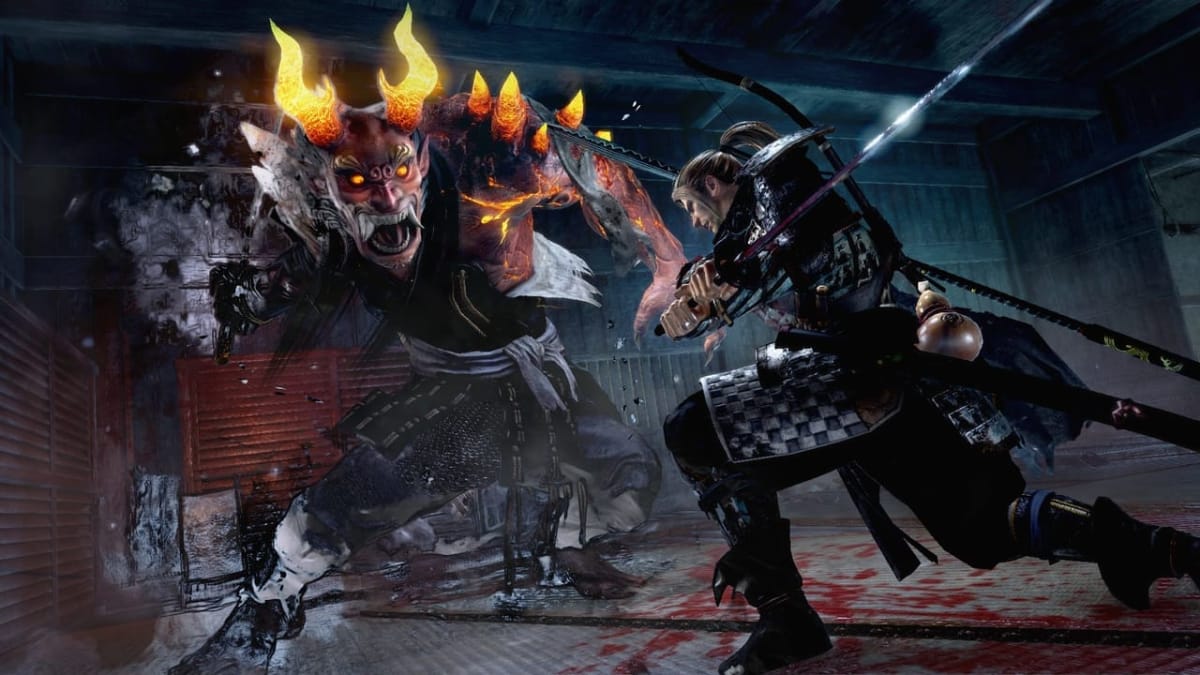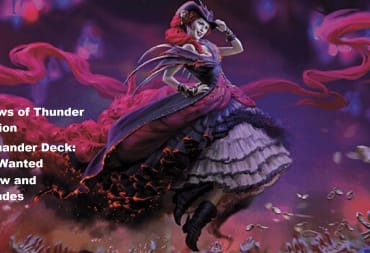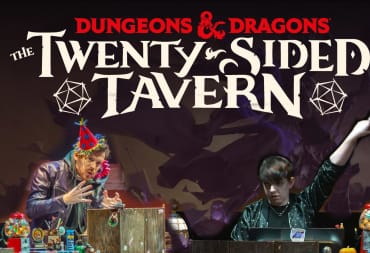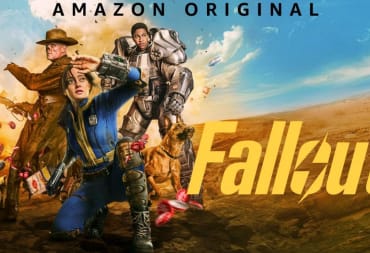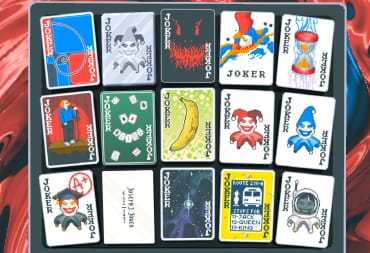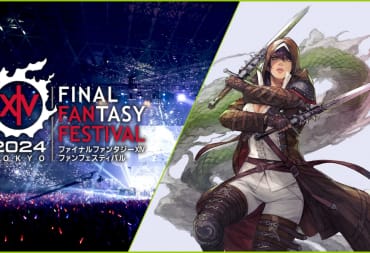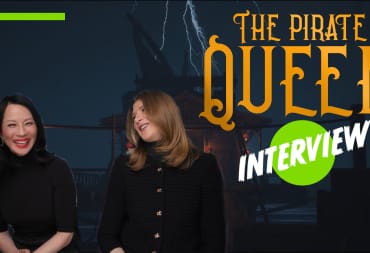It's that time of year again, folks: E3 is looming large. Some of the year's most significant gaming announcements are coming, courtesy of the biggest and most recognizable names in the industry. Sony. Microsoft. Nintendo. All of the big console manufacturers are gonna want to come out of the gate swinging this year, so as to impress industry people and fans alike. One of the ways in which those companies do this is with exclusive titles.
In a nutshell, exclusivity means exactly what it sounds like: a PS4 exclusive can only be purchased and played on PS4, a Switch exclusive can only be purchased and played on Switch, etcetera, etcetera. The thing is, though, the term "exclusive" gets dressed up in a lot of different ways around this time of year. If you're as glued to the E3 conferences as we definitely will be, you're bound to hear "exclusive" phrased and qualified a number of different ways. With that in mind, we thought it was a pretty good time to start demystifying some terms with a glossary. Here are just a few different ways you might hear companies and developers refer to "exclusivity".
Exclusive
This one's probably the most straightforward type of exclusive. These games are released for one platform, and will never be available for another one, or for PCs. There's usually funding involved from the console manufacturer, whether that be directly or via studio ownership. Think Horizon: Zero Dawn, Bloodborne, Super Mario Odyssey, et cetera. This tends to happen much more with Sony and Nintendo machines, especially since Microsoft announced that most first-party Xbox One games would also be released for PC via the Windows Store. There is still the odd Xbox One pure exclusive (Rare Replay, for example, or the Halo titles), but for the most part, it's Sony and Nintendo who do this.
It's also worth noting that this term can occasionally appear as a selling point for a game, only for qualifying statements to be buried in small print somewhere. Some companies will refer to a title as "exclusive", only for the small print to then qualify that the game launches first on that company's system, is actually a timed exclusive, et cetera. Caveat emptor.
Timed exclusive
A timed exclusive is a game which is released for a particular console, then eventually for other consoles and PCs too. Usually, the game will be released much earlier on a particular console so as to give that one a "headstart", so to speak. A prime example would be Rise of the Tomb Raider, which was released for Xbox One in November 2015, PC in January 2016 (excluding Linux machines) and PS4 way later in October. This is not to be confused with games like DOOM or Wolfenstein II: The New Colossus, which were made available for Switch via porting. Those weren't timed exclusives; rather, Bethesda simply made the decision to make them more widely available later.
Console exclusive
These games appear on one kind of console as well as PCs, and it's usually very very unlikely that they'll be made available for other platforms. Samurai slash-'em-up Souls-like Nioh fits this bill, as does head-scratching android philosophy-fest Nier Automata. Street Fighter V is another example, where Sony is reported to have paid part of the development cost to keep it to PlayStation 4 and PC.
Microsoft does this the most, with their first party titles being Xbox One and Windows 10 exclusives. These make them not true exclusives to either platform but they are console exclusive to the Xbox One, and on PC are in these cases typically only available via the Windows store on Windows 10.
Timed console exclusive
Also referred to as "console launch exclusive" by Microsoft back at E3 2017, timed console exclusives are available initially for PCs and a certain console, with a wider release coming later. Often, major console manufacturers will assist studios with marketing, promotion or even fund part of development in order to secure a game for their console first. This one is quite similar to a timed exclusive, with the key difference being the simultaneous or previous PC availability of the game.
Things can get tricky when it comes to Microsoft and console exclusives. First party games are almost always going to be released for Xbox One and Windows 10 only as part of their Play Anywhere program (sorry, Windows 8.1 users, you're out of luck). Sometimes, a console launch exclusive - or even a pure console exclusive by a third party - will also be available on PC beyond Windows 10 (often via Steam). An example of this would be The Darwin Project. In this case, "console launch exclusive" means the game is not available at launch on other consoles (for true console exclusives it works similarly - see Cuphead).
Exclusive DLC
This also covers "timed exclusive DLC". Exclusive DLC refers to a game which is made available for multiple platforms, but certain extra content is held back to a single platform. An example would be Bungie's MMOFPS Destiny, which restricted certain early DLC to PlayStation platforms. This is a prime example of timed exclusive DLC; these packs were made available for other platforms later but were available initially only on PS3 and PS4.
Pre-order exclusive
This isn't quite as prominent a term as the others, but it's still worth knowing what it means. Certain publishers offer bonus content should you decide to pre-order their game, either via participating retailers or through Steam or other digital distribution platforms. Many games have done this, including Far Cry Primal, God of War, Prey and more.
Retailer exclusive
Sometimes, publishers will do deals with certain retailers which reward pre-orders or purchases from that specific retailer. The game isn't necessarily exclusive to any one platform, and it usually isn't exclusive to that retailer, either (although this does happen); usually, there's some extra content, pre-order bonus or similar which only that specific retailer offers. This can be digital, but it's more common with physical retailers like GameStop.
Marketing exclusive
When a game is available for multiple platforms, there's no exclusivity deal in terms of distribution or timing, but all the marketing shows only one console, that's a marketing exclusive. Again, Destiny is a pretty great example of this. Destiny was advertised pretty much solely as a PlayStation game, despite being available on Microsoft's platforms, too. The game did have exclusive PlayStation-based content, but it wasn't actually an exclusive.
World premiere
Another term favored by our friends at Microsoft, "world premiere" is a bit of a cuckoo in the nest. This term doesn't actually mean the game is exclusive to a platform; rather, it refers to new footage people are seeing for the first time of a game. The term has been used by Microsoft to refer to Dark Souls III and Assassin's Creed Origins, among others, and simply means that the first gameplay footage of those games is being debuted during a company's conference.
VR exclusive
This one comes in PC and PS4 flavors at time of writing, but we're sure more will appear with time. These games work natively with VR headsets, whether they be the Oculus Rift and HTC Vive of PC fame or the PS4's exclusive VR headset. These aren't to be confused with VR-compatible games, which simply have extra VR features added on (see Resident Evil 7: Biohazard, for example). Some notable examples would be Wilson's Heart, DOOM VFR, The Inpatient, et cetera.
Since it's so much fun to complicate things further, there are a couple more things to mention here. Some games are platform-specific VR exclusives (The Inpatient is a PlayStation VR exclusive), as well as timed VR exclusives. Batman: Arkham VR and Skyrim were both timed PlayStation VR exclusives, with both games receiving standalone Oculus Rift and HTC Vive-compatible PC versions a few months after their initial PlayStation releases.
First on (system)
The "first on (system)" tag is most commonly associated with Nintendo, specifically the Switch. You may have seen a few Nintendo Direct presentations in which a game is said to launch "first on Nintendo Switch" later this year, or somesuch. This is quite a similar concept to timed exclusives, but the window of time between the first system release and the game coming to other consoles is usually not as long (although it can be).
We hope this clears up any confusion you might be having over exclusive titles. If there's anything we've missed, be sure to let us know in the comments below! Have a great E3, and be sure to check out TechRaptor's ongoing coverage of the event.
Have a tip, or want to point out something we missed? Leave a Comment or e-mail us at tips@techraptor.net
